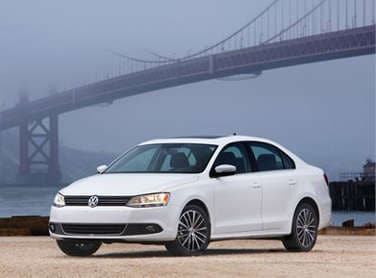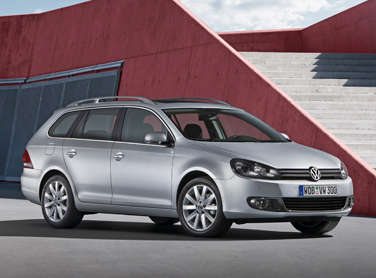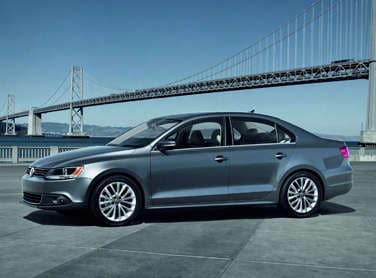Recent Articles
Popular Makes
Body Types
The 2011 VW Jetta and the Quality Conundrum

When Volkswagen completely redesigned the VW Jetta for the 2011 model year, the company no doubt wanted the result to represent a significant breakthrough in the marketplace. And boy, is it ever: It just became the lowest-quality compact car to ever earn top ratings for quality in the mid-size segment.
If that seems a little confusing, well, welcome to the wonderful world of third-party automotive quality studies. In the recent J.D. Power Initial Quality Study, the Jetta earned a "two" for overall quality (on a five-point scale), making it one of seven entries to earn the lowest rating given in the "Compact Car" segment. But in Strategic Vision's slightly recent-er Total Quality Index, the Jetta (specifically in sedan form) tied the Hyundai Sonata with the highest score in the "Mid-Size Car" category.
Something similar happened with the Ford Fiesta, too. In the IQS, the Fiesta scored a "two" for overall quality in the "Sub Compact Car" category and was one of just two models with a score that low—the other being the Chevrolet Aveo. But Strategic Vision, which separated the Fiesta sedan and hatch into two different groups, showed the former with the second-best rating in the "Small Car" segment, trailing only the Honda Civic Hybrid, and the latter achieving the fourth-best marks in the "Small Multi-Function" category.
Unsurprisingly, the overall Power results have both Ford and Volkswagen down in the quality basement as Nos. 23 and 29, respectively, while Strategic Vision places them a bit higher: VW was the highest-rated full-line automaker in the TQI and Ford was in second place, albeit just a single point ahead of Honda and Nissan.
Rating the Ratings
The party line for the differences here has to do with the way the two reports try to measure quality: The IQS relies on a purely quantitative approach, keeping track of each individual "problem" reported by customers. However, the outcome is that a feature like, oh, Ford's SYNC system may end up earning demerits because it's tough to use, not because there's anything actually "wrong" with the setup. The TQI, on the other hand, uses a more qualitative analysis, attempting to put a number on how much owners "love" their vehicles.
As to how different the two measures really are, just consider: The IQS separates vehicles into 20 different categories and the TQI uses 21, yet only five vehicles won their segments in both studies: The Dodge Challenger, Ford Taurus, Honda Accord Crosstour, Honda Ridgeline and Mercedes-Benz E Class. And even this is a sketchy comparison, because the Ridgeline and Crosstour don't really have any credible competition, based on their unique packages. Or how about this factoid: Four Lexuses (Lexi?) took home segment honors in the Power study while exactly none topped their categories for Strategic Vision.
Now, there's obviously a lot going on behind the scenes here, and it likely includes the fact that the automakers spend umpteen thousands of dollars supporting these third-party quality groups. Call me cynical, but it didn't surprise me in the least to find out that VW and Ford went from the bottom of the pack in one study to top of the heap just days later in another.
Yet, as I've always maintained, these reports do provide plenty of information, just not necessarily about vehicle quality.

The Jetta's High-quality Sales Numbers
The key to reading between the lines in any of these studies is to remember that as long as people are doing the decision-making, the results are going to be subjective. That's just human nature. But while this means it's not always productive to compare the quality scores of two different vehicles (or even two different studies) to try to determine which is "better," you can look at the performance of just one vehicle to get a handle on what folks think of it on its own.
For example, some people obviously think VW's efforts to de-content the Jetta to lower its price had a deleterious effect on its quality; others just as clearly think that the $16,495 German sedan offers a fairly high-quality proposition.
So, who's right? Well, that's the thing about opinions: There is no ultimate "right" or "wrong." The only people who I'd consider "wrong" here are those that say one of these studies is categorically "right."
The primary thing that should matter to VW is whether the Jetta is a success, and with sales up more than 120 percent in June, I think that answer is pretty clear.
